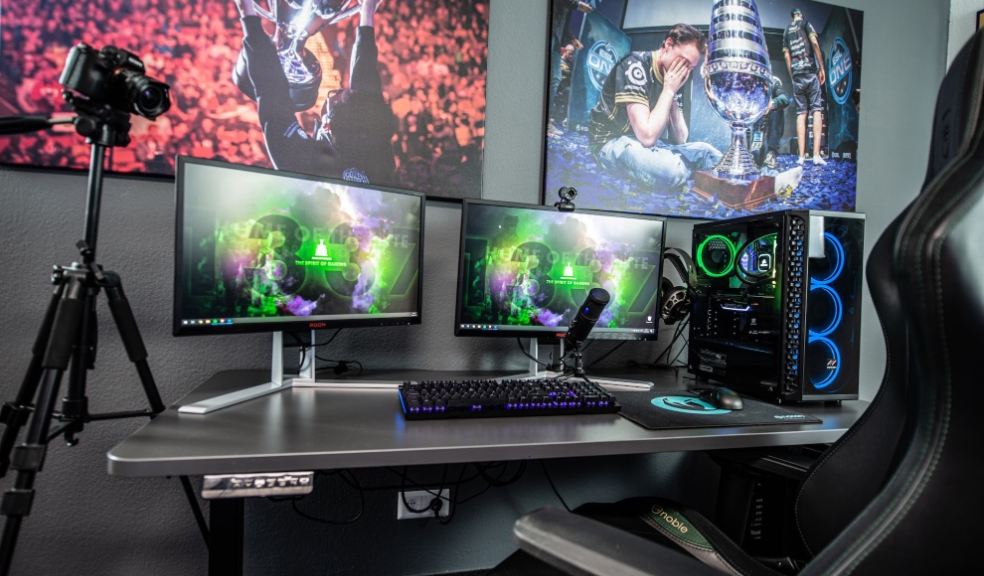
Why Gaming is the Future of Entertainment
You may have already heard the news that gaming recently surpassed movies and music as the world's highest-grossing form of entertainment. Casino games, for example, have always been popular, but for a long time you'd have to plan a trip to enjoy some of the top titles. Technology has changed all of that. Today, you can log on to your computer or pick up your smartphone and play various slot games for real money. Websites like OddsChecker list online casinos offering different interesting titles, making it easy for players to find the right one for them.
The same is true for almost any genre of games you want to play. There's nothing quite like losing yourself in an immersive world where you get to be the protagonist and control your destiny, or joining forces with friends around the world to defeat an enemy. And if you prefer a more casual approach to gaming, there are plenty of puzzlers and other casual games to keep you occupied.
The transformation of gaming began with the internet, and the advent of smartphones took this hobby mainstream. Keep reading to learn the reasons gaming is the future of entertainment.
Mobile Devices Are Taking Over
There's no denying that mobile devices, namely smartphones, have become an indispensable part of our daily lives. We take them everywhere—public transportation, international vacations, and work.
They've become our portable entertainment centres, with many people spending more time staring at their mobile phone's screen playing the best video games than watching TV. You can play almost any type of game you'd like to on these devices. What makes them special is their accessibility.
You don't need to invest in a next-generation console like the Xbox Series X or PlayStation 5 to play some of the best games on the planet. From indie games to massively multiplayer online games, they're all available on mobile devices.
As mentioned in the introduction, the internet has made this revolution possible. With 5G technology on the horizon, we can expect even better things from the mobile gaming experience.
Technological Advancements

We touched on this in the introduction and the last section, but it's worth taking a closer look at technology's impact on gaming. Gamers who were around in the 1970s and 1980s have had a front seat when it comes to the massive technological advancements in gaming over the past several decades.
Many players take today's immersive gameplay for granted without realizing that, not long ago, pixelated games where you had to use your imagination to visualize the environment were the norm.
With the development of powerful gaming consoles and PCs and high-speed internet, gaming doesn't resemble what it did in those early days. Games are now fully immersive experiences. You can even strap on virtual reality goggles to explore fully realized virtual roles and interact with the environments around you.
What's great is that technology shows no signs of slowing down, so we can expect continued innovation for years to come.
Gaming is a Consumer-First Industry
When gamers speak, the gaming industry listens. Why? Because the people who play their titles hold the power. If they stop playing their games, their profits will dry up. Gamers are known as a highly critical bunch. They expect a lot from the titles they pay big bucks for, and rightfully so.
After all, investing in a video game is not just a monetary transaction; you're investing a lot of time. Nobody wants to spend time playing an uninspired title, so they expect developers to put their all into creating titles that transport them to new universes and keep them engaged.
Game studios listen to what players have to say and are responsive, arguably more so than other parts of the entertainment industry. This keeps their audience loyal and is one of the primary reasons gaming will continue to sit atop the entertainment industry for years to come.
Games are Social
If you go to the movie theatre and talk to your friend about the action as each scene progresses, chances are you'll annoy the other spectators. Even streaming a movie at home is a solitary experience because most people want to focus on the action, not what the person sitting next to them has to say about the film.
In contrast, gaming is often a social event. While you can play many games on your own and millions of people around the world love doing so, you can also play in a team with friends. From Fortnite to Call of Duty Mobile, people gather online to play video games together.
Since you're often working as a team, you probably have chat enabled or use a Discord server to make decisions as you progress in a game. Even when playing casual titles like Candy Crush Saga, you can watch the leaderboard to see how far your friends have progressed and ask them for help along the way.
The social experience of video games is one of the ways it differs from other forms of entertainment and is what'll make it the most popular form of entertainment in the future.
Esports
Gaming isn't just about individuals coming together to play various titles as a hobby; it has become a professional sport. The top professional gamers can fill stadiums with fans just like traditional sports. Many commentators expect the viewership of esports events to surpass the MLB and NBA in the near future.
Spectator gaming, whether in-person, on ESPN or on Twitch, is another example of the evolution of gaming as a form of entertainment. eSports is now a billion-dollar industry and the top players make millions from endorsements, sponsors and appearances.
Many people spend hours training to become the best player in the world and, given the popularity of esports, we expect this trend to continue.
The Future is Gaming
There's no going back; gaming has become the dominant force in the entertainment industry and shows no signs of slowing down. As developers and studios continue to work with emerging technology to develop more innovative ways for players to enjoy their favorite pastime, it's unlikely music, film, or TV will be able to catch up.











